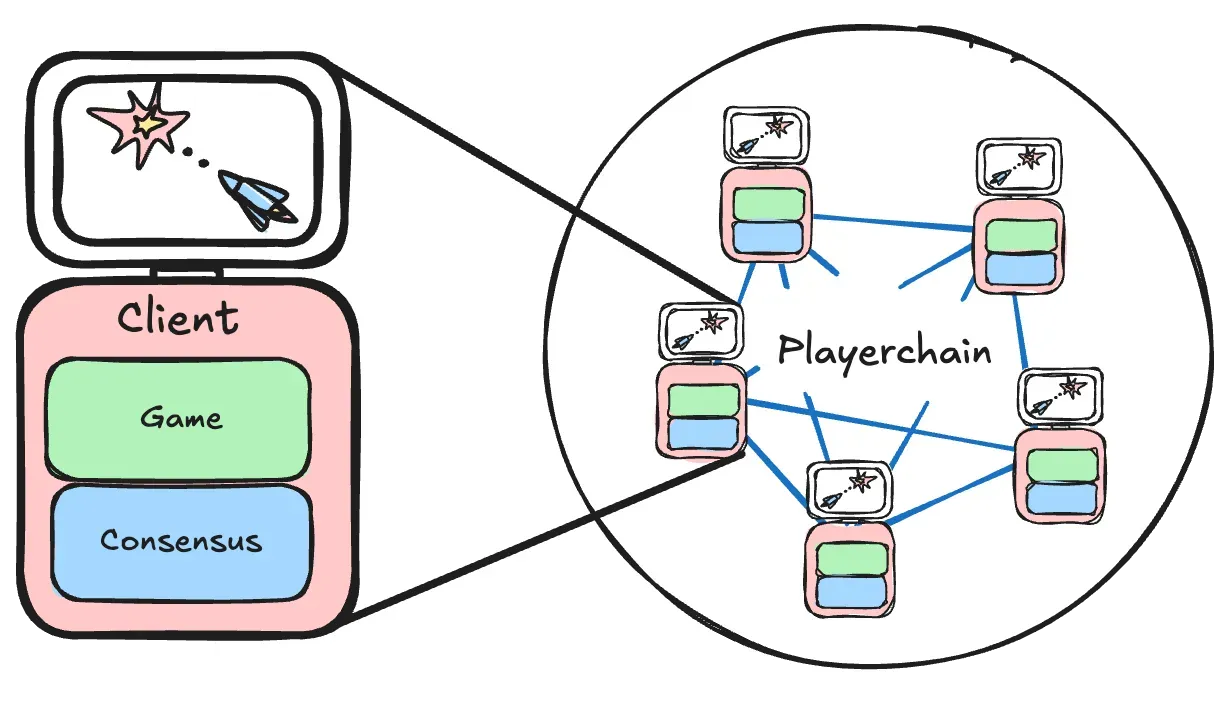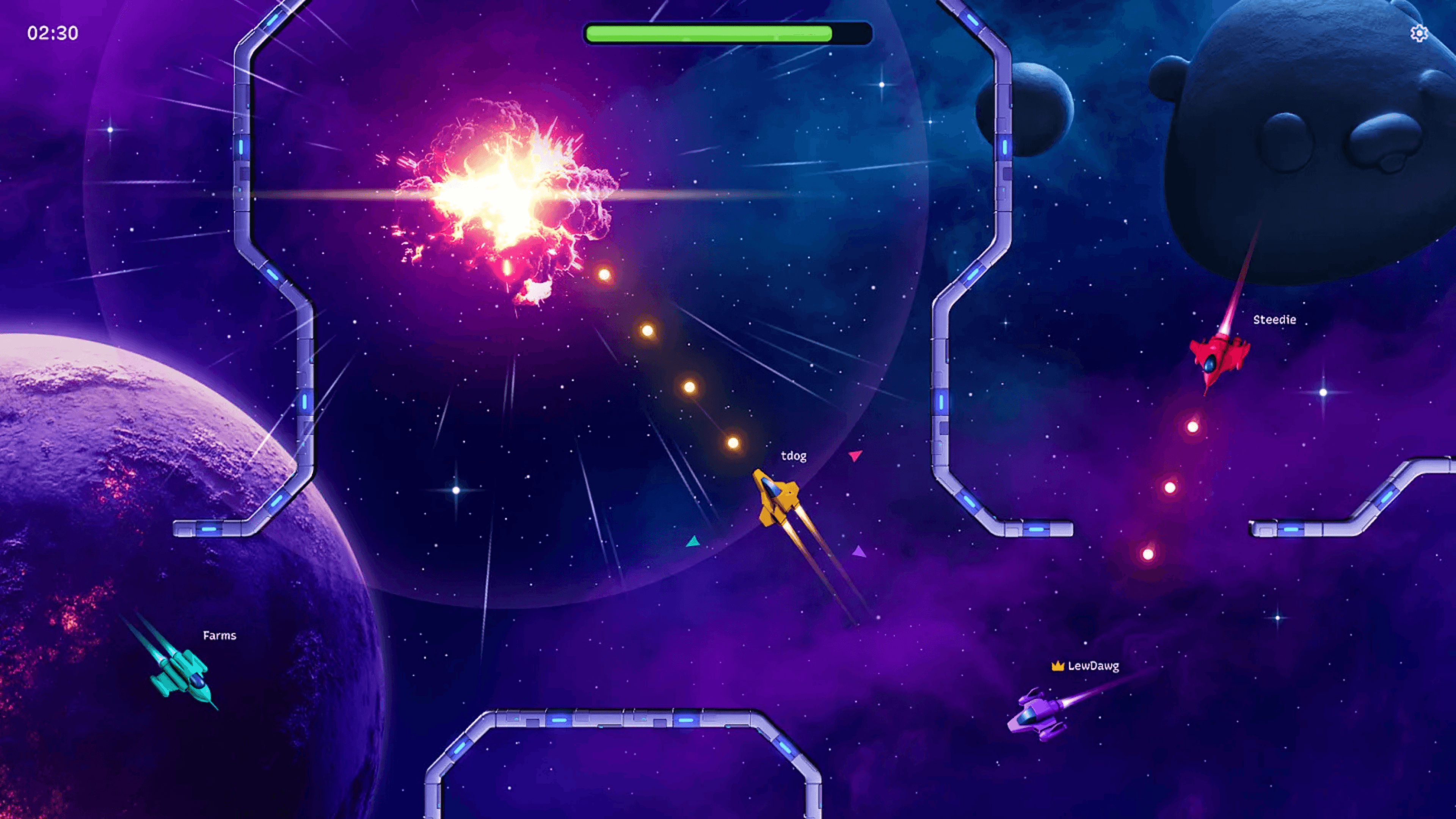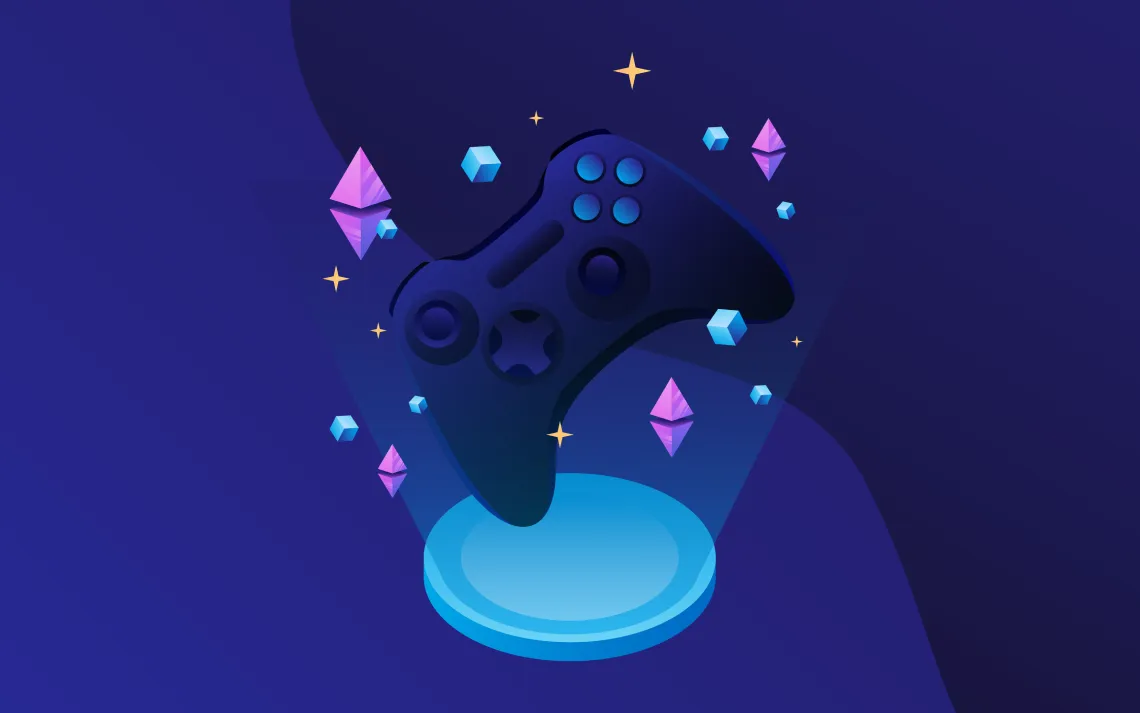For the past three years, UK-based studio Playmint has been developing fully on-chain games with a goal of advancing decentralized technology in the gaming sector. The company’s latest project, Space Shooter, which it claims is “the fastest fully decentralized game in the world,” is powered by its proprietary playerchains technology. This new approach is designed to overcome the limitations of existing decentralized technologies in gaming and establish a more game-focused model that minimizes financial speculation.

Fully on WHAT Chain?
Who Are Playmint?
Playmint’s exploration of decentralized gaming began with the launch of Downstream, an autonomous world user-generated content (UGC) platform on Ethereum Layer 2 Redstone in early 2024. Despite its technical achievements, Downstream highlighted certain limitations in running games on standard blockchain networks. Playmint’s CEO, David Amor, observed that public blockchain infrastructure, largely designed to support decentralized finance (DeFi), poses several obstacles for game developers.
Amor noted that standard blockchain technology results in high computational costs and slower transaction speeds, which conflict with the needs of real-time gameplay. Additionally, key gaming elements—such as hidden information and dynamic game update loops—are difficult to execute seamlessly on these networks. Recognizing that the decentralized infrastructure developed for DeFi and financial services does not necessarily align with the demands of gaming, Playmint sought a tailored solution.
Introducing Playerchains
To address these challenges, Playmint developed playerchains, a new technology designed to prioritize the gameplay experience over financial aspects. Unlike public blockchain platforms that inherently connect to monetary systems, playerchains operate on a permissioned chain that excludes financial elements. This means that games built on playerchains avoid entanglement with financial speculation, allowing gameplay to remain the core focus.
Playmint’s CTO, Iain Gilfeather, emphasized that playerchains foster “decentralized games that are for playing, not speculating.” According to Gilfeather, when games run on permissioned chains without monetary transactions, players are encouraged to engage primarily with gameplay rather than financial pursuits. This innovation marks a distinct shift in decentralized gaming by isolating game mechanics from the volatility of public blockchain markets.

Playerchains Graphic
Technical Advantages
In addition to minimizing financial speculation, playerchains address other practical needs of decentralized games. One notable feature is real-time multiplayer capability, a critical component for many games that current blockchain models struggle to support effectively. Playerchains also accommodate “tick-based” game development—a method that aligns well with traditional gaming workflows and is essential for many competitive and interactive game formats.
Furthermore, playerchains eliminate the need for gas fees, a common hurdle on traditional blockchain networks where each transaction requires a fee. This “gasless” experience means players can enjoy uninterrupted gameplay without incurring costs for every action or movement within the game. This enhancement makes decentralized gaming more accessible and aligns with player expectations for a seamless, cost-free experience.
The Launch of Space Shooter
Playmint’s Space Shooter is the first game to fully utilize playerchains, demonstrating the potential of this technology. By positioning Space Shooter as “the fastest fully decentralized game in the world,” Playmint is not only showcasing the capabilities of playerchains but also pushing the boundaries of what decentralized gaming can achieve. The game offers players a smooth, real-time experience that exemplifies the advantages of this new approach.

Playmint’s Space Shooter
Final Thoughts
Playmint’s playerchains could represent a shift towards a game-first model in decentralized gaming, encouraging developers to design games that prioritize playability and user engagement over financial considerations. For those interested in further exploring the architecture and rationale behind playerchains, Playmint’s CTO Iain Gilfeather has published detailed articles on Substack, titled “Why We Need Playerchains” and “Playerchain Architecture.”
With playerchains, Playmint is setting a new standard for decentralized gaming, focused on enhancing gameplay, reducing reliance on financial transactions, and addressing core issues that have previously limited fully on-chain games.
Source: blockchaingamer.biz



